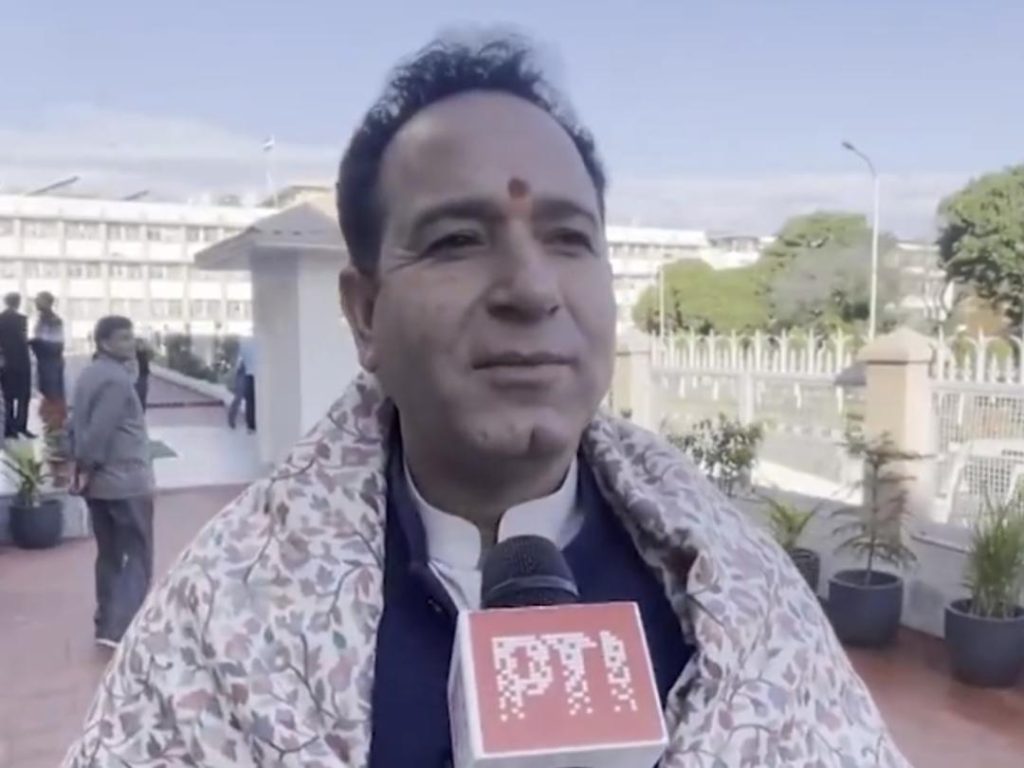
Irrelevant to Discuss Article 370 in J&K Assembly Session: BJP
The Jammu and Kashmir Assembly session has recently commenced, and the debate surrounding Article 370 has once again taken center stage. However, the BJP MLA and Leader of Opposition in the Jammu and Kashmir Assembly, Sunil Sharma, has made it clear that discussing Article 370 in the current session would be a futile exercise. According to Sharma, it would be a waste of time if the discussion on Article 370 were to take place in the Assembly.
Sharma’s statement comes after Lieutenant Governor Manoj Sinha delivered his address to the Assembly, which many have criticized for not reflecting the promises made by the present government. The LG’s address focused on the development initiatives and reforms implemented in the union territory, but failed to address the more pressing issues affecting the people of Jammu and Kashmir.
In an interview, Sharma emphasized that the discussion on Article 370 would not provide any practical solution to the problems plaguing the region. “It’s irrelevant now,” he said, adding that the government’s focus should be on addressing the more pressing issues affecting the people of Jammu and Kashmir.
Sharma’s statement has sparked a heated debate among political parties in the region. The National Conference (NC) and the Peoples Democratic Party (PDP), which have been vocal critics of the Centre’s decision to abrogate Article 370, have condemned Sharma’s views. They argue that the discussion on Article 370 is crucial for the future of the region and that the BJP’s attempt to silence the debate is a clear indication of its attempts to suppress the voices of the people.
On the other hand, the BJP has maintained that the discussion on Article 370 is no longer relevant, as the Centre’s decision to abrogate it has been implemented. The party has argued that the focus should now be on implementing the development initiatives and reforms promised by the government.
The controversy surrounding Article 370 is not new to the region. The provision, which was enshrined in the Indian Constitution, granted special status to Jammu and Kashmir. However, in August 2019, the Centre abrogated Article 370, prompting widespread protests and unrest in the region.
Since then, the region has been under a strict security lockdown, with the government imposing severe restrictions on the movement of people and goods. The lockdown has had a devastating impact on the economy and livelihoods of people in the region, with many businesses forced to shut down and thousands of people left without jobs.
Despite the challenges facing the region, the BJP government has maintained that its decision to abrogate Article 370 was necessary to integrate Jammu and Kashmir with the rest of the country. The government has also argued that the move has brought prosperity and development to the region, citing the establishment of various industries and infrastructure projects.
However, the opposition parties have dismissed these claims, arguing that the Centre’s decision has led to a worsening of the situation in the region. They have also criticized the government for its failure to address the more pressing issues affecting the people of Jammu and Kashmir, including poverty, unemployment, and lack of basic amenities.
In the midst of this controversy, Sharma’s statement that discussing Article 370 is irrelevant has sparked a heated debate. While some have criticized his views as an attempt to suppress the voices of the people, others have argued that the focus should be on addressing the more pressing issues affecting the region.
As the Jammu and Kashmir Assembly session continues, it remains to be seen how the debate on Article 370 will unfold. Will the government continue to maintain its stance that the discussion is irrelevant, or will the opposition parties continue to push for a discussion on the issue? Only time will tell.
Sources:





